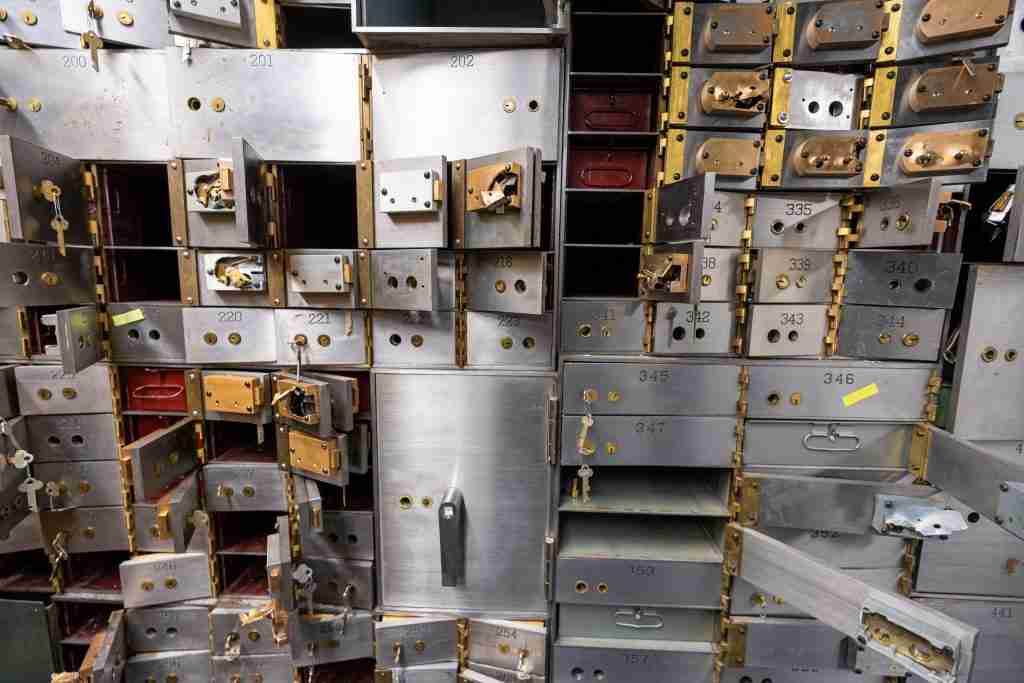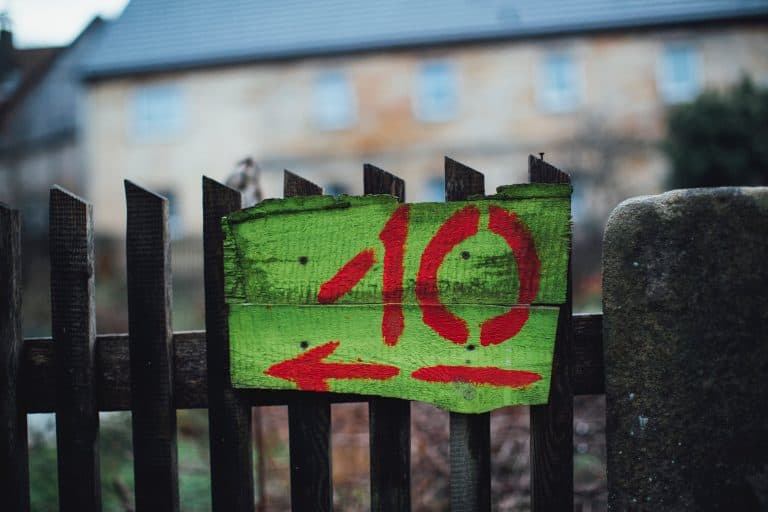How to prepare for a recession. 10 ways to secure your financial future
You can do several things to prepare for a recession, both financially and emotionally.
How to prepare for a recession involves building an emergency fund, reducing debt, diversifying investments, and cutting non-essential spending. It’s also wise to enhance your skills, stay informed about the economy, and seek professional financial advice to safeguard your finances during economic downturns.
Emotionally, it’s important to remember that recessions are temporary, and things will eventually improve.
In this article, we will explore 10 ways how to prepare for a recession
Summary table: What to do to prepare for a recession
| Action | Description |
|---|---|
| 1. Have an Emergency Fund | Set aside money for unexpected expenses to avoid financial stress. |
| 2. Live Within Your Means | Spend less than you earn to avoid debt and save for the future. |
| 3. Keep a Budget and Track Your Expenditure | Understand where your money goes and plan for future spending. |
| 4. Start a Side Hustle | Earn extra income to boost your savings or pay off debt faster. |
| 5. Pay Down or Pay Off Debt | Reduce your debt as quickly as possible to save on interest payments. |
| 6. Remember What You Are Investing For – The Long Term | Focus on long-term growth when investing, not short-term fluctuations. |
| 7. Network Your Social and Professional Contacts | Build relationships that can lead to job opportunities or business partnerships. |
| 8. No News is Good News – Sometimes | Avoid making financial decisions based on short-term news or market fluctuations. |
| 9. Don’t Panic | Stay calm during financial setbacks or market downturns. Stick to your plan. |
| 10. Increase Your Financial IQ | Continually learn about personal finance to make informed decisions. |

What is a recession?
A recession is when there is a general decline in economic activity or everybody stops spending money. Sometimes it’s classified as two-quarters of negative growth. So, until the financial data has come in, it’s not a recession. However, the media will be banging on about it before and after it happens.
In general, a recession usually only affects one or a few countries at a time. Granted, if your neighbouring country goes into recession, it might spill over into yours and others but won’t likely affect different continents. Unless you are in China or America, a recession here will affect most of the world.
The caveat here might be the US or China, which are such big economies if they have financial problems, we might all feel it.
Recession vs depression
An economic depression is a recession on steroids. It’s when there are massive job losses, and a severe regional or global downturn in spending and economic activity. A depression is usually also more long-term than a recession, two or more years, and sees a 10% or higher drop in GDP (Gross Domestic Product – everything the country makes and sells)
Most references to a depression reference the Great Depression in the US starting in 1929 and finishing in 1933. It began with a massive stock market sell-off, the large-scale closures of businesses and massive levels of unemployment.
Is a recession coming?
A recession is always on the horizon.
It may not be today, or even tomorrow, but at some point in the future, the economy will experience a downturn.
This is a normal part of the economic cycle, which consists of periods of growth (expansions) and periods of decline (recessions).
The timing of these cycles, however, is unpredictable and can be influenced by a myriad of factors such as fiscal policies, global events, and financial imbalances.
Recessions can last from a few months to a few years, and their severity can vary.
The key is not to fear recessions, but to prepare for them.
This means maintaining a diversified investment portfolio, building an emergency fund, and managing debt effectively.
By doing so, you can weather the storm when the economy does take a downturn, and be ready to take advantage of the opportunities that arise when the economy begins to recover.
How to prepare for a recession the practical steps
All these steps or actions you can start now ideally, you did them yesterday, but today is the next best time; tomorrow is the worst.
1. Have an emergency fund
Standard thoughts on this have been 3-6 months of expenditure available in cash in an easy-access account. This amount is connected to how long it might take you to find another job, i.e. 3- 6 months but also includes the types of costs that might come up in day-to-day life. Your boiler needs replacing, the car breaks down, you need to make an unexpected trip for good for bad news and need to pay for it.
If you don’t have an emergency fund in place, every unexpected expense or money challenge becomes a crisis. The boiler breaks, and you can’t find the money to fix it so you take our credit which you can’t pay off and start incurring expensive fees and on and on it goes.
Set up a separate account, name it the Emergency fund and automate money being transferred into it every month. Start small, start now.
2. Live Within Your Means.
Obviously spending less than you earn or earning more than you spend will put you in a much safer place. This will already give you some breathing space in your finances to flex when things go wrong.
You have no safety net for any changes if you spend all your income. You have a one-way ticket to bankruptcy / financial anxiety if you spend more than you earn. You will need to work for money forever. You will be digging a bigger and bigger whole that you will need to try and get out of at some point.
3. Keep a budget and track your expenditure
Keeping a budget will help you live within your means. If you set how and where you want to spend your money, you can ensure you don’t spend more than you have.
If you know where your money is going, you can review if you are happy with this. You can also review can you get what you want or need cheaper elsewhere? Can you cut down on how much you spend and ultimately, can you cut it out?
By reviewing how and where you spend your money you can evaluate are you happy with it? Are you getting what you wanted from the things you bought and from the money you spent all that time working for?

4. Start a side hustle
Having more than one source of income will give you greater security and diversify your sources of money.
Do you have a skill or hobby that others will pay to hear about or be taught in? Crafts, languages, DIY or skills related to your job?
Do you have a story to tell, fictional or factual that you could write up into a Kindle book and self-publish?
Could you start a blog in your niche hobby or interest that would attract an audience?
Any of the above could earn you modest pocket money or a serious side income, and every little helps.
5. Pay down or pay off debt
You could choose to pay off or pay down some of your more expensive debt and or in an ideal world not get into any more debt. Debt is a drag on all your finances, well being and wealth building.
Even if all businesses close and you are made redundant – the debt collectors will still come calling so better have a plan to pay them off as soon as possible or before they come by.
You could set up additional payments to pay it down faster – the debt avalanche method.
Or
You could try and pay off the smallest debts as quick as possible to see progress asap – the debt snowball method.
Debt can be complicated depending on how it fits into your financial situation. A way to get free advice is through Stepchange and the Money advice service.
6. Remember what you are investing for – the long term
Stock market crashes or as I should say temporary market declines happen way ahead of the actual arrival of a recession.
The best thing to do when stock markets decline is probably nothing. As this is part of the normal market cycle. If you do nothing, you have not lost any actual money. With time the market will recover as it has always done. Never be a forced seller, as this will be when you have to sell even when it’s the worst time to do so.
However, if you panic sell, you will crystalize any losses turning them into real losses. This is also probably telling you that you shouldn’t have been investing in the first place and or that your tolerance for risk was much lower than you thought, i.e. you can’t take the ups and downs.
At times of market volitivity, you need to remember what you were investing for and how today’s market ups or down fit in with that. Were you investing for short terms games so speculating or were you investing for long-term growth?
Over the long term, the stock market always goes up, so today’s losses make little to no difference to a 10+ year horizon. This is often more a mindset issue.
Do you believe that over the long-term things will get better or because they are lousy today they will always be bad? It can feel like the sky is about to fall in the heat of a crisis. But as time passes, you realize things weren’t that bad and seem to be looking on the up every day.
If your investments are well diversified i.e. not all your eggs in one basket, then some will be up, some flat and some down. Stay diversified and rebalance your investments to reflect your risk tolerance and your stage in life, i.e. how far away are you from reaching your goals?
7. Networking your social and professional contacts
The bigger your social and professional network the better you will be able to ride out any downturn in the economy. People will help you find work and support you as you have to change your lifestyle.
A strong professional network will recommend you for interviews, jobs or assignments, they will send you adverts and generally be your advocate.
Linkedin is one of the leading professional networking sites where you can add your profile, message people, post articles and advertise for jobs or your skillset.
If you have a strong social network through friends and family, church or social clubs they may come to your aid. Helping you through painful periods, you can do the same for your friends and colleagues.
8. No news is good news – sometimes
The news is often just a collection of bad and ugly stories put together to keep you horrified and hooked on watching, reading and listening for more bad news.
Once you can move from watching the news hourly to one good quality update daily, you will hopefully reduce your stress levels significantly. After about 15 minutes the news tends to start repeating itself anyway.

9. Don’t Panic
Few good decisions are made from a place of panic especially ones with significant lasting outcomes. Once you start panicking all bets are off. You are now at risk of making a series of bad decisions.
Buying or selling big positions in any investments outside of your normal investing process i.e. selling all your shares because you believe it’s the end of the world. If it is the end of the world, then its already too late and money is probably now worthless. So it’s probably best to treat your investments like your face and don’t touch it.
When things get bad, reevaluate what’s important to you, especially where your money is going. Are you getting what you need and want from your current expenditure?
If your income is about to reduce a review of where and how to cut or lower, your outgoing might be needed ahead of time.
Your mindset around these times and the behavior this leads to will be a crucial driver of how you can react, adjust and hopefully come out of a downturn in reasonably good shape.
Do you believe in the ingenuity of humans to solve and overcome new challenges, or is it all lost?
10. Increase your financial IQ
This is a great time to increase your financial knowledge. You can read books, listen to podcasts or watch YouTube videos. All to help expand how to make, keep and grow your wealth and of course what not to do with your money.
So, go on have a go
Read some books
Meaningful money By Pete Matthews Everything you need to know and everything you need to do.
Your Money or Your Life, 9 Steps to Transforming Your Relationship with Money and Achieving Financial Independence
RESET: How to Restart Your Life and Get F.U. Money: The Unconventional Early Retirement Plan for Midlife Careerists Who Want to Be Happy
Listen to podcasts
https://meaningfulmoney.tv/mmpodcast/ an excellent UK personal finance focussed podcast
https://www.choosefi.com/all-articles-and-podcasts/ A really good financial independence-focused podcast.
https://joinupdots.com/ a Superb small business start-up podcast all about setting up your own business.
Any way those are my thoughts on how to prepare for a recession let me know yours in the comments below.
FAQ: How to prepare for a recession
What’s the best thing to do in a recession?
-Identify ways to save more money
-Cut down your costs
-Plug your financial leaks
-Live within your means
-Look for ways to create more income
How do you survive a recession?
-Put in place an emergency fund
-Track your spending and reduce where you can.
–Create additional sources of income.
-Keep your skills up to date.
Is CASH good in a recession?
Yes, cash can be a good to have in a recession as it means you have easy access spending power.
Some risks are associated with holding onto cash during tough economic times.
For one, cash value can decline if there is high inflation.
If interest rates rise significantly, the returns you can earn from holding cash may not be as good as those you could get from investing in other assets such as bonds or stocks.
What to do to prepare for a recession?
When it comes to economic recession, preparation is key. Here are a few things you can do to help weather the storm:
Build up an emergency fund. This will help you cover unexpected costs if your income takes a hit.
Cut back on non-essential spending. If you’re putting less money into your savings account each month, consider trimming expenses in other areas of your budget.
Stay disciplined with your debt repayments.
If you have outstanding debt, make sure you stay on top of your payments. Missing even one payment can negatively impact your credit score.
Make a plan for job security. If you’re fearing possible layoffs, start updating your resume
What happens in a recession?
In a recession, economic activity slows down. This typically leads to higher unemployment rates, decreased consumer and business spending, falling stock markets, and lower inflation or even deflation. It can also result in an increase in government debt due to stimulus measures to revive the economy.
What to do in a recession to make money?
Here are a few strategies to make money during a recession:
Invest in Stocks: Recessions often lead to lower stock prices, providing opportunities to buy shares at a discount. Focus on companies with strong fundamentals that are likely to recover after the recession.
Increase Your Skills: Use the time to learn or improve new skills. This can lead to better job opportunities or the ability to start a new business.
Start a Business: Some businesses do well in a recession. For example, businesses that help people save money or offer essential services can thrive.
Invest in Real Estate: Property prices can drop during a recession, making it a good time to invest in real estate.
Freelance or Part-Time Work: If you have skills that are in demand, freelancing or part-time work can provide additional income.
Remember, it’s important to have a diversified investment strategy and not take on too much risk. It’s also a good idea to have an emergency fund in case of unexpected expenses.
How to take advantage of a recession?
Here are some strategies to take advantage of a recession:
Invest in Stocks: Recessions often lead to lower stock prices, providing opportunities to buy shares at a discount. Focus on companies with strong fundamentals that are likely to recover after the recession.
Buy Real Estate: Property prices can drop during a recession, making it a good time to invest in real estate.
Improve Skills or Education: Use the time to learn or improve new skills. This can lead to better job opportunities or the ability to start a new business.
Pay Off Debt: Lower interest rates during a recession can provide an opportunity to refinance or pay down debt more quickly.
Start a Business: Some businesses do well in a recession. For example, businesses that help people save money or offer essential services can thrive.
Save and Invest: If you’re able to save money during a recession, you can take advantage of lower prices to invest for the future.
Remember, it’s important to have a diversified investment strategy and not take on too much risk. It’s also a good idea to have an emergency fund in case of unexpected expenses.
How to prepare for inflation and recession?
Here are some strategies to prepare for inflation and recession:
Build an Emergency Fund: Having 3-6 months’ worth of living expenses can provide a financial buffer in case of job loss or reduced income.
Diversify Your Investments: A mix of stocks within low-cost index funds can help protect your portfolio. Some assets, like gold or real estate, can provide a hedge against inflation.
Pay Down Debt: High-interest debt can become even more burdensome during a recession. Try to reduce your debt as much as possible.
Increase Your Income Streams: Having multiple sources of income can provide financial stability. This could be a side job, rental income, or dividend-paying stocks.
Focus on Essential Spending: Prioritize spending on necessities and try to cut back on non-essential expenses.
Keep Investing: Continue to invest regularly, even during a recession. This allows you to buy assets at lower prices and benefit from potential growth when the economy recovers.
Stay Informed: Keep up with economic news and adjust your financial plan as needed. Consider seeking advice from a financial advisor.
Summary: What should I do to prepare for a recession?
In conclusion, implementing these strategies can significantly enhance your financial well-being and set you on a path to long-term success. 🚀
Have an emergency fund: 💰 Establishing an emergency fund ensures you have a financial safety net for unexpected expenses or emergencies.
Live Within Your Means: 🙌 Practicing this means spending less than you earn and avoiding unnecessary debt, allowing you to maintain a sustainable financial lifestyle.
Keep a budget and track your expenditure: 📊 Creating and following a budget helps you understand where your money is going and enables better financial planning.
Start a side hustle: 💼 Exploring additional income sources, such as a side business or freelancing, can boost your earnings and accelerate your financial goals.
Pay down or pay off debt: 🗄️ Prioritizing debt repayment allows you to reduce interest payments and regain financial freedom.
Remember what you are investing for – the long term: 🎯 Keeping your long-term goals in mind helps you stay focused and make sound investment decisions aligned with your objectives.
Networking your social and professional contacts: 🤝 Building strong connections can lead to valuable opportunities, knowledge sharing, and potential financial growth.
No news is good news – sometimes: 📰 Avoiding impulsive financial decisions based on short-term market fluctuations can prevent unnecessary panic and maintain a steady investment approach.
Don’t Panic: 😌 Staying calm during financial challenges or market downturns allows you to make rational decisions and avoid hasty actions that may harm your long-term financial stability.
Increase your financial IQ: 📚💡 Continuously learning about personal finance, investing, and money management empowers you to make informed financial choices and navigate the complex financial landscape.
By incorporating these practices into your financial journey, you can take charge of your financial future and build a solid foundation for prosperity. 🏦✨
Take Action on your life and finances now!
Are you in your 40s and feeling the financial squeeze? You’re not alone. This can be a challenging time financially, as you may be:
- Juggling mortgage payments 🏠
- Managing family expenses 👨👩👧👦
- Planning for retirement 🏖️
- Saving for your children’s college education 🎓
- Paying off lingering debts 💳
It’s time to stop the stress and start your journey to financial happiness. Financial coaching can provide the tools and guidance you need to navigate these challenges. With coaching, you can:
- Create a realistic and manageable budget 💼
- Develop a clear and achievable savings plan 🐖
- Learn effective strategies for debt repayment 🔄
- Understand and plan for future financial needs 📈
- Start saving and investing for financial independence 💰
- Gain peace of mind knowing you’re on the right track 😌
- Start your journey to making work optional one day 🏖️
Don’t let financial worries cloud the prime of your life. Schedule a call with me today at Financially Happy Money Coaching, and let’s turn your financial stress into financial success!
Together, we can build a plan that aligns with your goals and sets you on a path to financial freedom. Let’s make your money work for you, not vice versa. 💪💰







